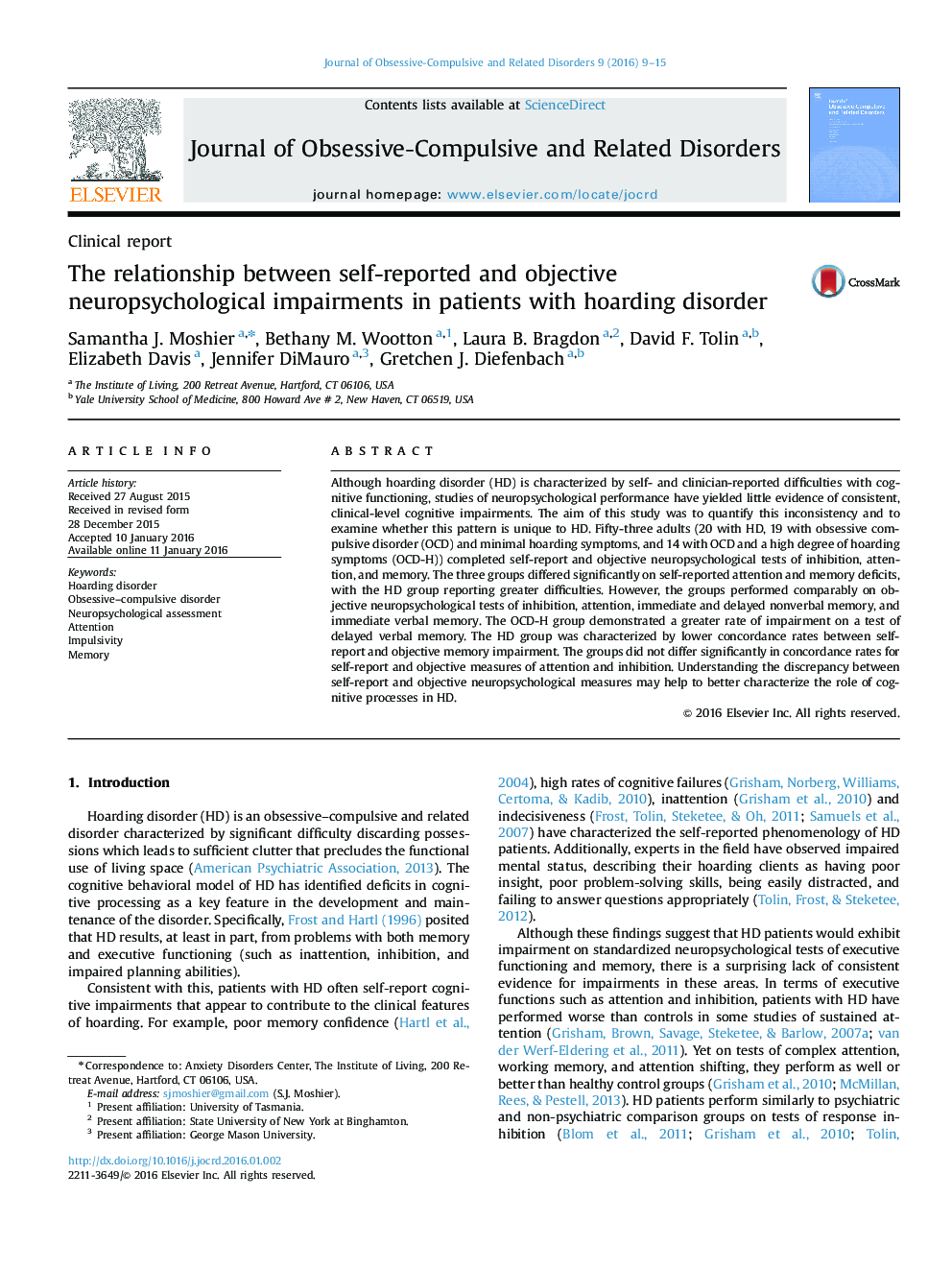| Article ID | Journal | Published Year | Pages | File Type |
|---|---|---|---|---|
| 912182 | Journal of Obsessive-Compulsive and Related Disorders | 2016 | 7 Pages |
•HD and OCD samples were compared on self-report and objective cognitive assessments.•Patients with hoarding symptoms self-reported greater problems with attention and memory.•The diagnostic groups did not differ on most neuropsychological tests.•Concordance between self-report and objective memory measures was lower in HD group.
Although hoarding disorder (HD) is characterized by self- and clinician-reported difficulties with cognitive functioning, studies of neuropsychological performance have yielded little evidence of consistent, clinical-level cognitive impairments. The aim of this study was to quantify this inconsistency and to examine whether this pattern is unique to HD. Fifty-three adults (20 with HD, 19 with obsessive compulsive disorder (OCD) and minimal hoarding symptoms, and 14 with OCD and a high degree of hoarding symptoms (OCD-H)) completed self-report and objective neuropsychological tests of inhibition, attention, and memory. The three groups differed significantly on self-reported attention and memory deficits, with the HD group reporting greater difficulties. However, the groups performed comparably on objective neuropsychological tests of inhibition, attention, immediate and delayed nonverbal memory, and immediate verbal memory. The OCD-H group demonstrated a greater rate of impairment on a test of delayed verbal memory. The HD group was characterized by lower concordance rates between self-report and objective memory impairment. The groups did not differ significantly in concordance rates for self-report and objective measures of attention and inhibition. Understanding the discrepancy between self-report and objective neuropsychological measures may help to better characterize the role of cognitive processes in HD.
